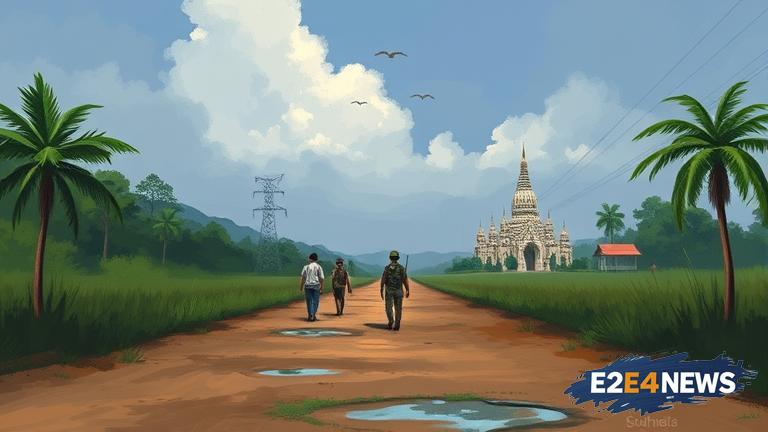Thailand and Cambodia have agreed to engage in ceasefire talks after US President Donald Trump stepped in to help resolve the ongoing border conflict between the two nations. The conflict, which has been ongoing for several years, has resulted in numerous casualties and displaced thousands of people. Despite the agreement to talk, border clashes continue to persist, with both sides exchanging gunfire and artillery fire. The conflict centers around a disputed border area, with both countries claiming ownership of the territory. The situation has been further complicated by the presence of ancient temples and other cultural artifacts in the disputed area. The US President’s intervention has been seen as a significant development in the conflict, with many hoping that it will lead to a lasting resolution. However, others have expressed skepticism, citing the complexity of the issue and the deep-seated tensions between the two nations. The ceasefire talks are expected to take place in the coming days, with representatives from both countries meeting to discuss a potential resolution. The talks will be facilitated by a third-party mediator, with the goal of reaching a mutually acceptable agreement. In the meantime, the situation on the ground remains tense, with both sides maintaining a heavy military presence in the disputed area. The conflict has had a significant impact on the local population, with many forced to flee their homes and seek shelter in nearby towns and cities. The economic impact of the conflict has also been significant, with trade and tourism in the region severely disrupted. The international community has been watching the situation closely, with many calling for a peaceful resolution to the conflict. The United Nations has issued a statement urging both sides to engage in constructive dialogue and to avoid any actions that could escalate the situation. The European Union has also weighed in, calling for a ceasefire and a return to negotiations. Despite the international pressure, the situation on the ground remains volatile, with both sides dug in and refusing to back down. The conflict has also had a significant impact on the environment, with the disputed area being home to a number of endangered species and fragile ecosystems. The ongoing fighting has resulted in significant damage to the environment, with many of the area’s natural resources being destroyed or degraded. The cultural significance of the disputed area has also been a major point of contention, with both sides claiming ownership of the ancient temples and artifacts. The conflict has been further complicated by the presence of other countries in the region, with some providing military and economic support to one side or the other. China, in particular, has been accused of providing significant support to Cambodia, which has been seen as a major factor in the conflict. The US, on the other hand, has been providing support to Thailand, which has been seen as a key ally in the region. The situation remains complex and multifaceted, with many different factors at play. Despite the challenges, there is still hope that a peaceful resolution can be reached, with many calling for a return to negotiations and a commitment to finding a mutually acceptable solution. The international community will be watching the situation closely in the coming days, with many hoping that the ceasefire talks will mark the beginning of a new era of peace and cooperation in the region.
